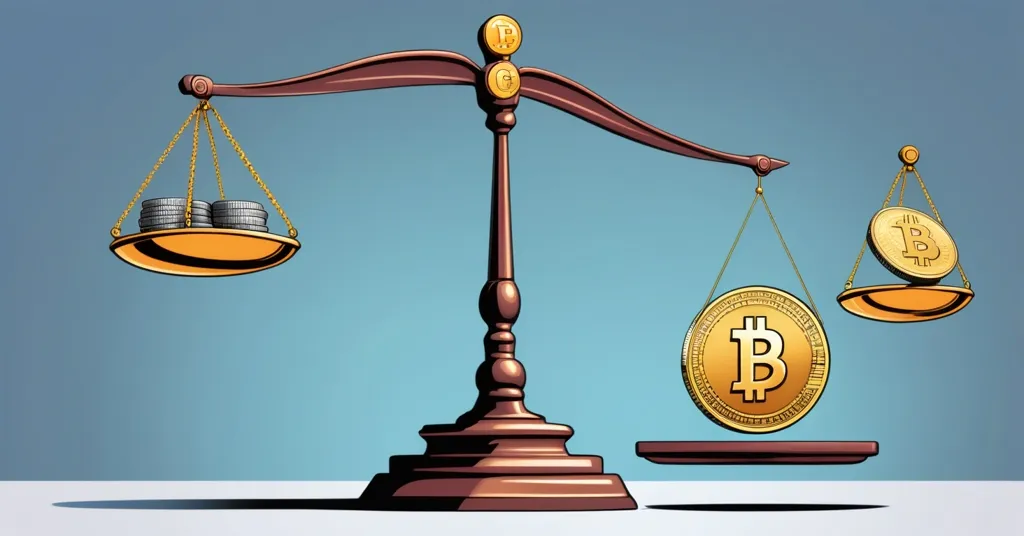Illinois Advances Crypto Fraud Bill: Senate Bill 1797 Moves Forward

Illinois State Senator Mark Walker’s Crypto Fraud Bill Advances
Illinois State Senator Mark Walker’s Digital Assets and Consumer Protection Act (Senate Bill 1797) has moved a step closer to becoming law after passing the Illinois Senate Executive Committee on April 4, 2025. This bill aims to protect consumers from digital asset fraud while fostering innovation in the crypto industry.
- Illinois Senate advances crypto fraud bill
- Bill empowers state regulation of digital assets
- National debate on crypto regulation continues
The proposed legislation, known as the Digital Assets and Consumer Protection Act, seeks to combat the rising tide of digital asset fraud. Digital assets, including cryptocurrencies and blockchain tokens, have seen a surge in popularity, but with it comes the risk of scams and fraudulent activities. Senator Walker (D-Arlington Heights) introduced Senate Bill 1797 to address these concerns by empowering the Illinois Department of Financial and Professional Regulation (IDFPR) to set guidelines for the crypto industry.
The bill mandates that crypto businesses operating in Illinois must register with the IDFPR, provide clear information to customers, and demonstrate their ability to fulfill payouts. This move is designed to ensure that only credible and honest actors are allowed to operate within the state, reducing the chances of consumer fraud. On April 4, 2025, the bill passed the Illinois Senate Executive Committee, marking a significant step forward in its journey to becoming law.
Senator Walker emphasized the dual nature of digital assets, stating,
“The rise of digital assets has opened the door for financial opportunity, but also for bankruptcy, fraud and deceptive practices.”
He further added,
“We must set standards for those who have evolved in the crypto business to ensure they are credible, honest actors.”
These statements highlight the bill’s focus on enhancing transparency and accountability in the crypto industry.
The advancement of Senate Bill 1797 occurs amidst a national debate on cryptocurrency regulation. President Donald Trump’s administration has shown a pro-crypto stance, with recent reports indicating the cessation of cryptocurrency investigations by the U.S. Justice Department. This contrasts with critics who warn of potential consumer risks associated with digital assets. The bill’s progression reflects Illinois’ attempt to navigate this complex landscape, balancing the potential of digital assets with the need for consumer safety.
While the bill aims to enhance transparency and accountability in the crypto industry, critics argue that such regulations could stifle innovation. However, the provisions for registration and compliance could also encourage responsible growth and development within the sector. As the bill moves forward, it will be crucial to monitor its impact on both consumer protection and the broader crypto ecosystem.
The next step for Senate Bill 1797 is a vote by the full Illinois State Senate, scheduled for April 9, 2025. If it passes, it will move to the House of Representatives and ultimately to Governor J.B. Pritzker for approval or veto.
Senator Walker’s stance on technology and regulation provides context for his motivations behind the bill. Known for his advocacy for consumer protection, Walker sees the regulation of digital assets as a necessary step to protect Illinois residents from the risks associated with cryptocurrencies.
The registration process for crypto businesses under the proposed bill would involve submitting detailed information about their operations, including financial stability and security measures. This could pose challenges for smaller businesses and startups but is intended to weed out bad actors and enhance trust in the industry.
Other states have also taken steps to regulate cryptocurrencies, with varying approaches to balancing innovation and consumer protection. For example, New York’s BitLicense has been criticized for its stringent requirements, while Wyoming has taken a more crypto-friendly stance. Illinois’ approach with Senate Bill 1797 aims to find a middle ground, encouraging innovation while safeguarding consumers.
Key Questions and Takeaways
- What is the purpose of Senate Bill 1797?
The purpose of Senate Bill 1797, the Digital Assets and Consumer Protection Act, is to combat digital asset fraud by empowering the Illinois Department of Financial and Professional Regulation to set guidelines for the crypto industry.
- What are the key requirements for crypto businesses under the proposed bill?
Crypto businesses would be required to register, provide clear information, and demonstrate their ability to fulfill customer payouts.
- What is the next step for the bill after passing the Illinois Senate Executive Committee?
The next step is for the bill to be voted on by the full Illinois State Senate, followed by a vote in the House of Representatives, and finally, it would go to Governor J.B. Pritzker for approval.
- How does the bill fit into the national context of crypto regulation?
The bill’s advancement occurs during a national debate on crypto regulation, with President Donald Trump advocating for a pro-crypto framework, while critics highlight potential consumer risks.
- What are the potential benefits and risks of the proposed legislation?
The potential benefits include increased consumer protection and reduced fraud in the crypto space. The risks include potential overregulation that could stifle innovation and the growth of the crypto industry.
The passage of Senate Bill 1797 could set a precedent for other states grappling with similar issues. Whether this bill will strike the right balance between fostering innovation and protecting consumers remains to be seen, but it’s clear that Illinois is taking a proactive approach in the regulation of digital assets. As the crypto landscape continues to evolve, the implications of this bill could extend far beyond the state’s borders, influencing the future of cryptocurrency regulation nationwide.



